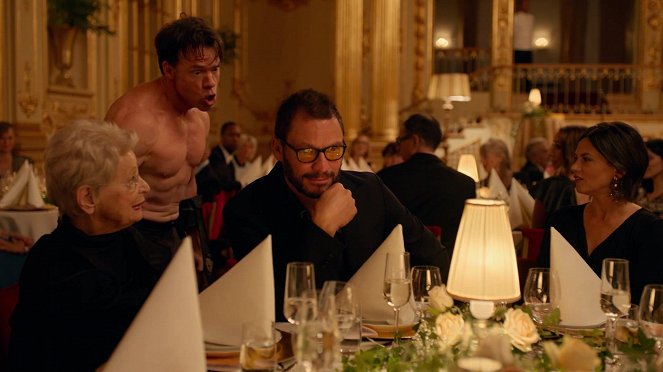Directed by:
Ruben ÖstlundScreenplay:
Ruben ÖstlundCinematography:
Fredrik WenzelCast:
Claes Bang, Elisabeth Moss, Dominic West, Terry Notary, Sofie Hamilton, Christopher Læssø, John Nordling, Linda Anborg, Jan Lindwall, Iman Mirbioki (more)VOD (3)
Plots(1)
Force Majeure director Ruben Östlund returns with a knife-sharp satire on art, culture and communication in the digital age. Winner of the Palme d'Or at the 2017 Cannes Film Festival, The Square stars Claes Bang, Elisabeth Moss and Dominic West. Christian is a divorced but devoted father of two, and the respected curator of a contemporary art museum in Stockholm. He's gearing up to launch their next show, 'The Square', a daring installation examining altruism and our duty to help others. However, Christian's own views on social responsibility are put to the test when he becomes the victim of a scam, forcing him to question the world around him and his place in it. Meanwhile, a shocking viral stunt cooked up by the museum's PR agency is met with public outcry, sending Christian - and the museum - into an existential crisis. With pitch-perfect performances, inventive set pieces and a cutting deadpan wit, The Square is a hilarious, unique and often surreal look at idealism and cynicism in the modern world. (Curzon Artificial Eye)
(more)Videos (5)
Reviews (6)
This is a film about how easy it is to lose something and try to find it again. But above all, it is a film about what art is, how far it reaches, and what we can perceive as art. There are quite a few good questions asked here, either actually or metaphorically, that are definitely worth pondering. Art and madness are interchangeable.
()
Ruben Östlund is probably the most interesting director and screenwriter of contemporary Scandinavia. Twice I rated his films with the full five stars, for his impersonal but brilliantly told stories. Here, however, I will be a bit critical – but really just a bit. The Square has a rather complex premise, and you have to think hard to understand what its creator is getting at. It features a number of inventive and original scenes, but its unnecessary long running time is to its disadvantage. The fact that the metaphorical square is supposed to be the contemporary Europe is still boggling my mind. In my opinion a rather interesting insight into the high Scandinavian society of today.
()
Considering how highly this film is rated, I don't think I belong to its target audience. After all, I'm no intellectual who can see an art installation in a pile of construction material. Modern art is completely beyond me, so the long debates on the subject put me to sleep, and the shots without any plot (and there were quite a few) didn’t help much either. To make matters worse, the film suffers from political correctness. One star for the controversial clip, Oleg's primate and the hard-working cleaner.
()
An interesting film, a sharp criticism of modern Swedish society – we could even say Europe, actually – and even though it is about Art, which I don't really seek out, I surprisingly enjoyed myself and the film caught my attention. The film has some interesting ideas, memorable scenes – strange sex with Elisabeth Moss, threatening letters being thrown into mailboxes in an apartment building, and of course the crazy psycho scene where Terry Notary converts a monkey at a company party, which makes it stand out even at an above average rating). Story****, Action>No, Humor**, Violence>No, Entertainment****, Music***, Visuals****, Atmosphere****, Suspense***. 7/10.
()
The Square is a remarkable mirror held up to contemporary Western European society with its hypocrisy combined with the struggle for maximum political correctness. There are many excellent, original and spot-on scenes that make the viewers bate their collective breath, but also many that make the movie unnecessarily long. Perhaps that was Östlund’s intention (“If you place an object in a museum, does it make it art?”), but if it was, he shouldn’t have slowed the movie down, but just added some hints of a second narrative level. Less could have been more. Anyway, it is a good companion to Haneke’s Happy End, which examines a similar topic.
()



Ads